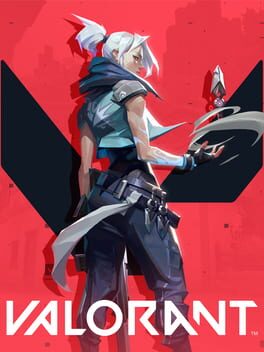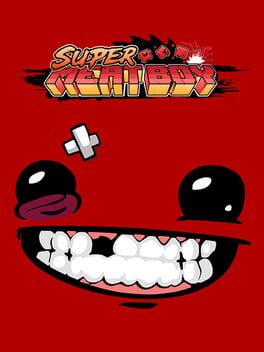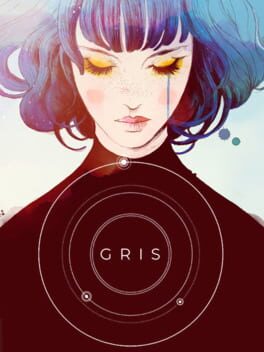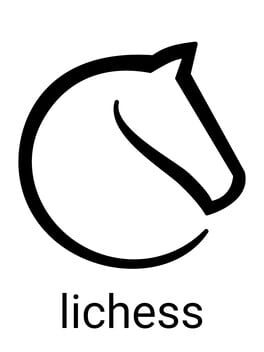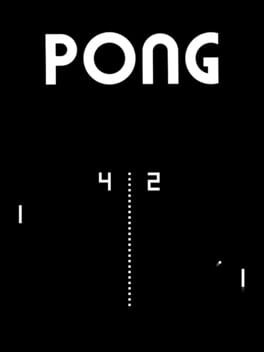liamholland
10 reviews liked by liamholland
Animal Well
2024
Animal Well really is a thing you need to experience with a controller in your hands and full focus because it is a living, breathing art piece that sucked me in. I bought this game 5 hours ago and I haven't put it down since. The way everything animated is like drinking cool water on a hot night. Refreshing.
Seeing the previews of this game, I thought "ok big youtuber videogamedunkey is firmly in his 30's and wants to expand beyond making shitposts and make money by becoming an indie publisher". I wasn't moved at all by any of the promotion for Animal Well. I am bored to DEATH of 2D platformers and this game only teased a pleasant art style which is not enough to make me care. Most 2D games all mostly play the same. I'm sleep.
Thing is I got 24.68 on my Steam Wallet, so why not give it a try.
It is a Metroidvania logic puzzler. There are no tutorials in Animal Well. You are left as to guess how you progress forward. It's not Baba is You go FUCK yourself hard. It is quite simple and natural gameplay that leads to bigger and bigger "ah-HA!" moments. The kind where you feel dumb and smart. Smumb. Darmbt. I felt like I was one of those things.
The gameplay mixed with the environments and ambient music just clicked with me hard. I was 45 minutes into the game after being cynical about the whole thing and my brain just snapped after a certain puzzle solution and I realized this game has a hidden power level of cleverness. It is so meticulously well thought out. It's not trying to reinvent the wheel. It just was catered for you to have a good time.
I recommend this game for everyone. I've been in a gaming slump where no new game releases has really excited me, but Animal Well is the game that pulled my brain out of that fog. Not saying it will do the same for you, but if you give it a shot, it just might.
It ain't as good as Hollow Knight, but this is right under that (so far) as a jaw dropping 2D game with content that keeps upping the ante in amazement.
Jamal Dunkey picked a banger to kick off his publishing venture.
Seeing the previews of this game, I thought "ok big youtuber videogamedunkey is firmly in his 30's and wants to expand beyond making shitposts and make money by becoming an indie publisher". I wasn't moved at all by any of the promotion for Animal Well. I am bored to DEATH of 2D platformers and this game only teased a pleasant art style which is not enough to make me care. Most 2D games all mostly play the same. I'm sleep.
Thing is I got 24.68 on my Steam Wallet, so why not give it a try.
It is a Metroidvania logic puzzler. There are no tutorials in Animal Well. You are left as to guess how you progress forward. It's not Baba is You go FUCK yourself hard. It is quite simple and natural gameplay that leads to bigger and bigger "ah-HA!" moments. The kind where you feel dumb and smart. Smumb. Darmbt. I felt like I was one of those things.
The gameplay mixed with the environments and ambient music just clicked with me hard. I was 45 minutes into the game after being cynical about the whole thing and my brain just snapped after a certain puzzle solution and I realized this game has a hidden power level of cleverness. It is so meticulously well thought out. It's not trying to reinvent the wheel. It just was catered for you to have a good time.
I recommend this game for everyone. I've been in a gaming slump where no new game releases has really excited me, but Animal Well is the game that pulled my brain out of that fog. Not saying it will do the same for you, but if you give it a shot, it just might.
It ain't as good as Hollow Knight, but this is right under that (so far) as a jaw dropping 2D game with content that keeps upping the ante in amazement.
Jamal Dunkey picked a banger to kick off his publishing venture.
The Legend of Zelda
1986
epic games preservation fail: secrets permanently out of stock. there was once a wonder of the ancient gaming world here. but now it is covered in stainless steel and rebar. very few people explore in hyrule anymore. now, its visitors are mostly tourists. if a game like this was released today, people would rightfully call its core design hopelessly naive.
zelda 1 was always meant to be solved with a little bit of help- whether it be homemade maps, schoolyard secret swapping, or good old Nintendo Power™. but that does not mean that the years have been kind to the game. the world map itself remains unchanged 35+ years later. it's us who have changed around it. a whole cottage industry has sprung up on teaching people how to finish video games. sure, guide magazines existed in the 80s. but the rugged, chunky open world is cut through like mist with the guided tours that clutter the first several pages of google search results. the exact amount of help you'll need in this game isn't even clear until you've already spoiled yourself, and the vast, vast majority of people Will need help to get to the end of this game.
miyamoto famously created this game to evoke the feeling from his childhood of trying to piece together surroundings he didn't understand, organically discovering surprises along the way. as a society, no matter how we try and ignore it, we always have a perfect map in our backpack.
zelda 1 was always meant to be solved with a little bit of help- whether it be homemade maps, schoolyard secret swapping, or good old Nintendo Power™. but that does not mean that the years have been kind to the game. the world map itself remains unchanged 35+ years later. it's us who have changed around it. a whole cottage industry has sprung up on teaching people how to finish video games. sure, guide magazines existed in the 80s. but the rugged, chunky open world is cut through like mist with the guided tours that clutter the first several pages of google search results. the exact amount of help you'll need in this game isn't even clear until you've already spoiled yourself, and the vast, vast majority of people Will need help to get to the end of this game.
miyamoto famously created this game to evoke the feeling from his childhood of trying to piece together surroundings he didn't understand, organically discovering surprises along the way. as a society, no matter how we try and ignore it, we always have a perfect map in our backpack.
Valorant
2020
It takes a special kind of game to make me hate it as much as AM hated humans in "I have no mouth and I must scream", every grueling second I spent playing Valorant was miserable, and it got so bad it took me to the point where I genuinely thought for a moment that playing League or Overwatch are better experiences than playing this fucking thing, HATE. HATE IS ALL I FEEL FOR VALORANT
Valorant
2020
Next year I’ll think of a more creative april’s fools joke but sometimes less is more
Super Meat Boy
2010
Killer7
2005
Many years ago, Dara O’Briain did one of the only good standup routines about video games. Video games, O’Briain argued, are the only entertainment medium that actively tests the observer, withholding their content behind challenges of mentality and dexterity. Albums, television shows and films will carry on regardlessly from the moment you press play; sections of a book that prove hard to read can be flipped past; but challenging sections of a game have to be bested or even mastered in order to progress. Want to see what happens next in Dark Souls, but can’t beat the Capra Demon? Too bad. Heard that Through Time and Space is one of the best video game levels ever, but can’t grapple with The Witcher’s inventory management and combat systems? Tough shit.
While there’s an amusing honesty to the bit, it kinda belies an uncomfortable truth about video games - that the parts where you’re moving the joysticks are likely to be the only moments of intellectual stimulation that most video games have to offer, with cutscenes more or less functioning as rewarding soap opera spectacle. It’s hard to discuss this kind of thing without sounding like a wanker, but it’s just a fact that even prestigious “adult” game-fiction like The Last of Us or God of War still rarely stirs anything more than an acknowledging “huh” in the players who’ve deigned to step outside the cultural borders of electronic entertainment and other mainstream media. Games narratives still tend to rely on cinematic cutscenes to convey information and drama, and most of the time said information or metatext is barely worth parlaying to the player - $10 million spent on comic book writers telling us “man is the real monster” or “depression is bad”. At their very best, our prestige video games are still just doing replicas of better movies.
killer7 differentiates itself from this convention in a number of ways. It’s a game that makes no concessions for those who expect a linear, event-driven narrative, peppering weirdo pseudo-plot and thought throughout map layouts, door keys (ever thought about what the Soul Shells are?) and helpful hints from dudes in gimpsuits who are prone to taking left turns into Baudrillardian philosophy while directing you to the bathroom. Textual and subtextual ambiguity reigns supreme. The gameplay (on Medium, at least) is unlikely to challenge the player all that much - aside from a few head-scratcher puzzles, it’s more or less a case of walking from point of interest to point of interest to open doors and shoot zombies. And, in a strange inversion of the problem outlined above, it’s the cutscenes and character dialogues that will tax a player’s brain far harder than anything that involves clicking buttons.
I think killer7 is a work of profound ridiculousness. Or ridiculous profundity. Something like that, anyway - I’m not quite sure of the precise term I need here, but I think Suda and Mikami are pulling from the playbooks of guys like Thomas Pynchon and David Lynch with this game - keep throwing potentially meaningful ideas and images at the screen, both within and outwith the realm of the cutscene, and let the true ones stick - the viewer will be too busy grappling with the good to remember the bad. It’s a technique that surprisingly few games dabble in, despite the supernatural properties of the medium and the obnoxious, inhuman lengths that most games require a player to play for.
So what are the good images here? Well, I guess it’s a function of the temporal, political and personal preferences of the player. Like abstract paintings, surrealist movies and post-modern novels, killer7 is wholly open to interpretation through your own kaleidoscopic lens. Unlike most game narratives that more or less bluntly prescribe a story and some associated themes (if any at all), killer7, like most Suda games, seems content to spray blood against the walls and do some interactive Rorschach testing with your psyche. Sure, there’s talk of American-Japanese relations and terrorism and borders and killers and the valise of our personae, but there’s nothing proscriptive or particularly didactic here - it’s more or less a presentation of post-9/11 realities that the player is asked to order and interpret as they see fit; a balancing act of feelings versus facts in opposition with fictions. Hand in killer7, the companion book for killer7, even (deliberately?) contradicts the facts of its own reality within the first ten pages - as if to highlight how pointless an endeavour Making Sense of it All is, especially in our Fukuyama/Fisher-influenced End of Capitalist-Realist History-Present.
By complete coincidence, I played through this game in parallel with the trial of Ghislaine Maxwell, and finished it on the same day she was convicted - so Target 03: Encounter (Part 2) - where the Killer 7 head to an Epstein-pre-Epstein prescient-simulacra of Little James Island to take out an organ trader and implied child molester - held particular relevancy to me. The Jeffrey Epstein case and its relevant co-conspiracies are probably the best examples of what I’m prattling on about above - get ten, twenty, or a hundred people in a room together, and you’ll probably get a hundred interpretations of what the inner sanctum of Epstein’s reality really was - a whole smoothie bar of blended facts, news, fake news, Facebook news, speculation, fiction, fact and fuck knows what else. killer7 is often lumped together with The Silver 2425 as part of the “Kill the Past” series, and I think this info-meld of history in the melting pot of public consciousness is one of the chief relationships the games have with each other. Ironic that games about removing the past would so thoroughly realise the future of our present.
How did Suda51 know that the word’s top players would conspire to send an assassin after a sanctioned private ally of the United States government, a living evil who trafficked young girls with both personal and ulterior purpose? And how did he know a global pandemic would (temporarily) return humanity to a road-faring race? As is often suggested with Suda51 (see also: The Silver Case, No More Heroes) he may be one of gaming’s top producers of prophetic works. “Prophetic media” has been in vogue since March 2020 - references to media-elite paedophile rings in mid-2000s Nickelodeon cartoons; references to coronavirus in mid-2010s K-Dramas; references to Tom Hanks getting sick in mid-1990s episodes of The Simpsons. Wow! How do they pull it off?! Well, as with killer7’s imagery, I think it may be down to volume of produce rather than accuracy of content. The Simpsons is able to predict so much shit correctly because every ‘incorrect’ prediction isn’t even recognised as a prediction until it comes close to resembling some form of the truth we want it to be. The same applies to the images that Grasshopper’s games create.
Is this the secret to making remarkable, meaningful art and cultural commentary? Just keep producing, producing, producing until your images become resonant by virtue of the typewriter-monkey principle? That’s maybe underselling what Grasshopper achieved here - the foundations killer7 are built upon are more or less rock-solid. The cel-shaded mono-colour aesthetic is timeless, and the chosen palette for each Target is fittingly eerie. The control system, while initially awkward, is ultimately a solid compromise for a game that distills a gameplay fusion between Mikami’s Resident Evil series and Suda’s Silver Case adventure games - and it feels even better on PC, where 90% of the game can be played with just the mouse.
Although often cited as unconventional, I think the gameplay style of killer7 is a fairly logical compromise for these two creators, who seem more concerned with tone poetry and 2000s-exploration than providing a compelling and practical gamefeel. Anyway, it’s sometimes more important that a game feels good in the brain than on the hands moving the controller. killer7 is a game that locks its content away inside your mind, with progress often being made many hours after you’ve stepped away from the console and allowed your third eye time to process the images your two eyes have seen. It’s all in your head.
While there’s an amusing honesty to the bit, it kinda belies an uncomfortable truth about video games - that the parts where you’re moving the joysticks are likely to be the only moments of intellectual stimulation that most video games have to offer, with cutscenes more or less functioning as rewarding soap opera spectacle. It’s hard to discuss this kind of thing without sounding like a wanker, but it’s just a fact that even prestigious “adult” game-fiction like The Last of Us or God of War still rarely stirs anything more than an acknowledging “huh” in the players who’ve deigned to step outside the cultural borders of electronic entertainment and other mainstream media. Games narratives still tend to rely on cinematic cutscenes to convey information and drama, and most of the time said information or metatext is barely worth parlaying to the player - $10 million spent on comic book writers telling us “man is the real monster” or “depression is bad”. At their very best, our prestige video games are still just doing replicas of better movies.
killer7 differentiates itself from this convention in a number of ways. It’s a game that makes no concessions for those who expect a linear, event-driven narrative, peppering weirdo pseudo-plot and thought throughout map layouts, door keys (ever thought about what the Soul Shells are?) and helpful hints from dudes in gimpsuits who are prone to taking left turns into Baudrillardian philosophy while directing you to the bathroom. Textual and subtextual ambiguity reigns supreme. The gameplay (on Medium, at least) is unlikely to challenge the player all that much - aside from a few head-scratcher puzzles, it’s more or less a case of walking from point of interest to point of interest to open doors and shoot zombies. And, in a strange inversion of the problem outlined above, it’s the cutscenes and character dialogues that will tax a player’s brain far harder than anything that involves clicking buttons.
I think killer7 is a work of profound ridiculousness. Or ridiculous profundity. Something like that, anyway - I’m not quite sure of the precise term I need here, but I think Suda and Mikami are pulling from the playbooks of guys like Thomas Pynchon and David Lynch with this game - keep throwing potentially meaningful ideas and images at the screen, both within and outwith the realm of the cutscene, and let the true ones stick - the viewer will be too busy grappling with the good to remember the bad. It’s a technique that surprisingly few games dabble in, despite the supernatural properties of the medium and the obnoxious, inhuman lengths that most games require a player to play for.
So what are the good images here? Well, I guess it’s a function of the temporal, political and personal preferences of the player. Like abstract paintings, surrealist movies and post-modern novels, killer7 is wholly open to interpretation through your own kaleidoscopic lens. Unlike most game narratives that more or less bluntly prescribe a story and some associated themes (if any at all), killer7, like most Suda games, seems content to spray blood against the walls and do some interactive Rorschach testing with your psyche. Sure, there’s talk of American-Japanese relations and terrorism and borders and killers and the valise of our personae, but there’s nothing proscriptive or particularly didactic here - it’s more or less a presentation of post-9/11 realities that the player is asked to order and interpret as they see fit; a balancing act of feelings versus facts in opposition with fictions. Hand in killer7, the companion book for killer7, even (deliberately?) contradicts the facts of its own reality within the first ten pages - as if to highlight how pointless an endeavour Making Sense of it All is, especially in our Fukuyama/Fisher-influenced End of Capitalist-Realist History-Present.
By complete coincidence, I played through this game in parallel with the trial of Ghislaine Maxwell, and finished it on the same day she was convicted - so Target 03: Encounter (Part 2) - where the Killer 7 head to an Epstein-pre-Epstein prescient-simulacra of Little James Island to take out an organ trader and implied child molester - held particular relevancy to me. The Jeffrey Epstein case and its relevant co-conspiracies are probably the best examples of what I’m prattling on about above - get ten, twenty, or a hundred people in a room together, and you’ll probably get a hundred interpretations of what the inner sanctum of Epstein’s reality really was - a whole smoothie bar of blended facts, news, fake news, Facebook news, speculation, fiction, fact and fuck knows what else. killer7 is often lumped together with The Silver 2425 as part of the “Kill the Past” series, and I think this info-meld of history in the melting pot of public consciousness is one of the chief relationships the games have with each other. Ironic that games about removing the past would so thoroughly realise the future of our present.
How did Suda51 know that the word’s top players would conspire to send an assassin after a sanctioned private ally of the United States government, a living evil who trafficked young girls with both personal and ulterior purpose? And how did he know a global pandemic would (temporarily) return humanity to a road-faring race? As is often suggested with Suda51 (see also: The Silver Case, No More Heroes) he may be one of gaming’s top producers of prophetic works. “Prophetic media” has been in vogue since March 2020 - references to media-elite paedophile rings in mid-2000s Nickelodeon cartoons; references to coronavirus in mid-2010s K-Dramas; references to Tom Hanks getting sick in mid-1990s episodes of The Simpsons. Wow! How do they pull it off?! Well, as with killer7’s imagery, I think it may be down to volume of produce rather than accuracy of content. The Simpsons is able to predict so much shit correctly because every ‘incorrect’ prediction isn’t even recognised as a prediction until it comes close to resembling some form of the truth we want it to be. The same applies to the images that Grasshopper’s games create.
Is this the secret to making remarkable, meaningful art and cultural commentary? Just keep producing, producing, producing until your images become resonant by virtue of the typewriter-monkey principle? That’s maybe underselling what Grasshopper achieved here - the foundations killer7 are built upon are more or less rock-solid. The cel-shaded mono-colour aesthetic is timeless, and the chosen palette for each Target is fittingly eerie. The control system, while initially awkward, is ultimately a solid compromise for a game that distills a gameplay fusion between Mikami’s Resident Evil series and Suda’s Silver Case adventure games - and it feels even better on PC, where 90% of the game can be played with just the mouse.
Although often cited as unconventional, I think the gameplay style of killer7 is a fairly logical compromise for these two creators, who seem more concerned with tone poetry and 2000s-exploration than providing a compelling and practical gamefeel. Anyway, it’s sometimes more important that a game feels good in the brain than on the hands moving the controller. killer7 is a game that locks its content away inside your mind, with progress often being made many hours after you’ve stepped away from the console and allowed your third eye time to process the images your two eyes have seen. It’s all in your head.
Gris
2018
A platformer with a symbolic and surreal style, not surprisingly created by a Catalan painter named Conrad Roset. He is a true artist, out of the ordinary, who in his paintings conveys that carnal and passionate spirituality typical of Catalonia (and it reminds me of what Dalí said about his homeland). But Gris is not an erotic game; it is a psychological game. Gray is the color of depression, of the senselessness resulting from loss, and each level of the game is associated with a specific color/emotion.
The story begins with the protagonist being held up by the hand of a female statue, perhaps her mother, perhaps her companion, perhaps herself. But at some point, this statue crumbles: the support is no longer there. Like a tear in the abyss, the sense of loss, absence, fragmentation, and crisis emerges. When the player takes control of the protagonist, she can barely walk. And as the game progresses through the levels, she will acquire more and more abilities, each linked to a specific state of existential distress, leading to healing (starting from anger, translated into the ability to transform into a boulder capable of shattering rocks, to the healing song because the only true cure for the "deadly disease" of living is art).
Returning to the discussion about Catalonia, visually, Gris is a triumph of symbols of nature, with all those strange trees, seascapes, flowers of a thousand colors, and forest creatures that seem to guide the protagonist towards healing. The symbolism of the tree of life refers to Jung and certain paintings by Klimt; the frightening black bird/fish/dark mother in the shadows represents primal unease, the ghosts of the past returning; the omnipresent squaring of the circle, on the other hand, is the most classic symbol of self-completion and unity within fragmentation. The game's developer himself stated that Gris is a sort of self-therapy, a journey of reclaiming one's life following a painful event. There's also nothing to be said about the gameplay: far from being trivial, the game offers many puzzles and challenges, as well as multiple possibilities for interaction with the picturesque environment in which you are immersed from the beginning to the end of the dreamlike journey. It almost feels like playing a sort of Utena or Tenshi no Tamago, works with which Gris shares some stylistic, hermetic, not to mention symbolic choices (growth is always a path guided by pain and its conscious processing, which cannot exist without renouncing the refuge in the stagnation of existential moratorium). And that's it: let the images speak, because too many words, too much reasoning, and too many projections become completely useless at a certain point.
The story begins with the protagonist being held up by the hand of a female statue, perhaps her mother, perhaps her companion, perhaps herself. But at some point, this statue crumbles: the support is no longer there. Like a tear in the abyss, the sense of loss, absence, fragmentation, and crisis emerges. When the player takes control of the protagonist, she can barely walk. And as the game progresses through the levels, she will acquire more and more abilities, each linked to a specific state of existential distress, leading to healing (starting from anger, translated into the ability to transform into a boulder capable of shattering rocks, to the healing song because the only true cure for the "deadly disease" of living is art).
Returning to the discussion about Catalonia, visually, Gris is a triumph of symbols of nature, with all those strange trees, seascapes, flowers of a thousand colors, and forest creatures that seem to guide the protagonist towards healing. The symbolism of the tree of life refers to Jung and certain paintings by Klimt; the frightening black bird/fish/dark mother in the shadows represents primal unease, the ghosts of the past returning; the omnipresent squaring of the circle, on the other hand, is the most classic symbol of self-completion and unity within fragmentation. The game's developer himself stated that Gris is a sort of self-therapy, a journey of reclaiming one's life following a painful event. There's also nothing to be said about the gameplay: far from being trivial, the game offers many puzzles and challenges, as well as multiple possibilities for interaction with the picturesque environment in which you are immersed from the beginning to the end of the dreamlike journey. It almost feels like playing a sort of Utena or Tenshi no Tamago, works with which Gris shares some stylistic, hermetic, not to mention symbolic choices (growth is always a path guided by pain and its conscious processing, which cannot exist without renouncing the refuge in the stagnation of existential moratorium). And that's it: let the images speak, because too many words, too much reasoning, and too many projections become completely useless at a certain point.
Lichess
2010
Pong
1972
I noticed a weird bug where the ball went through the paddles sometimes, the devs really should fix that on the next patch...
There's something so cosmically hilarious in the fact the CEO of Atari saw what would become one of the most influential piece of tech to ever be made as a ''fucking piece of trash'', and the main developer, Allan Alcorn, thought of it just as a side project where he did some things haphazardly to make his bosses weird-ass demands happy. It grounds the legend around Pong while being even more inspiring un a way.
It wasn't the first arcade machine, it wasn't the most creative thing you could do with the tech even back then, but damn if those beeps and boops aren't charming as hell and if playing alone isn't some of the most oddly interesting fun you could have with a game like this, even if sometimes hitting the ball when it respawns is even harder than when another player hits it back...
I could go on about Pong for 4000 words... except actually no, I couldn't; it's Pong, and beyond its unbelievably important historical value and rich history, it's still a game, and even more than half a century later, it still holds up as one.
A legacy that other games from back then and soon after do share, but one still worth praising nonetheless...
There's something so cosmically hilarious in the fact the CEO of Atari saw what would become one of the most influential piece of tech to ever be made as a ''fucking piece of trash'', and the main developer, Allan Alcorn, thought of it just as a side project where he did some things haphazardly to make his bosses weird-ass demands happy. It grounds the legend around Pong while being even more inspiring un a way.
It wasn't the first arcade machine, it wasn't the most creative thing you could do with the tech even back then, but damn if those beeps and boops aren't charming as hell and if playing alone isn't some of the most oddly interesting fun you could have with a game like this, even if sometimes hitting the ball when it respawns is even harder than when another player hits it back...
I could go on about Pong for 4000 words... except actually no, I couldn't; it's Pong, and beyond its unbelievably important historical value and rich history, it's still a game, and even more than half a century later, it still holds up as one.
A legacy that other games from back then and soon after do share, but one still worth praising nonetheless...


